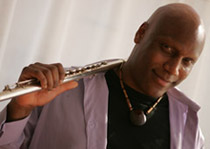Lately I've been thinking a lot about higher education. The classrooms, resources, teachers, goals, methodologies...Each time I get thinking, I feel distraught. In my world, there are professors really trying to do things beneficial for student development working alongside professors who use their position as a way to push their individual agenda into student development. The world inside academia is highly political; enlivened by the study of topics and people who while in school may seem important, yet outside of an academic world, have little to no relevance.
I've spent the last several months helping a friend revise her DMA document (like a dissertation, but smaller for a Doctorate of Musical Arts) and I've been ranting and raving about the lack of support she seems to get from her advisor. She herself is from a country outside the U.S.-english is not her first language. Yet she has written a substantive document to support her degree. Her advisor has reviewed her document briefly; commenting only on the things she believes should be changed to support her own ideas (not the student's). The advisor has provided zero guidance on the syntax (again, the student is not from the U.S.) or assisted her in any re-writes or revisions. Instead, the student must depend on me to work with her for hours upon hours to craft a document ready for review. It's driven her crazy; each time we sit to work we complain that the work I'm doing is the work of the advisor – that advisor will get big thanks when the document is published, and get that thanks from doing little to no work.
I've gotten really frustrated a number of professors in higher education who maintain the position that is not student centered. I also tire of the notion that the student must adhere to what seems to be an arbitrary set of guidelines, rules, and procedures that MUST be completed to receive a degree,yet often times, have little to no connection with the students own goals and ambitions, or any relation to the development of the 'real world'. In schools of music this seems to happen all the time. I can tell you that I've seen and heard some incredible musicians; people who would make your jaw drop at the incredible levels of talent and skill that they themselves have developed on their instruments – and yet – these same musicians have no idea how to apply their skill and nurture their careers. Imagine being the best flutist in the world, yet having no idea where to find a job, get work, promote your art and craft; these are the people I meet everyday. They can play, sing, dance,etc...but have little knowledge of opportunities available to themselves, and typically, even less knowledge of how to forge a position for themselves in a fractured industry. In fact, the only things these students seem to know is how to do the same thing their instructors did; perpetuating 'the same' again and again. Do what has already been done, and, teach others to do the exact same thing. And yet, they do this in an age when because of advances in technology and global diversity,a musician can achieve some modicum of success, regardless of genre or specification, if that musician is aware of the tools they can utilize to achieve their dreams.
Is Mozart important to a budding rapper? Must a pop guitarist display a substantive understanding of mensural time? Are jazz performers gonna need to write works in the style of medieval composers? Maybe all these things are important and should be taught, but, to whom and why? I'd really like to see a re-evaluation of what is important, what is relevant, and what will help a student to flourish outside of academia's world. I'd like to see professors use what they know as a starting point for a student's development, but maintain the flexibility to modify the path that will give a student the best chance to think and work independently.
Imagine, for example, an up and coming music educator. He's spent hours working with concert bands, writing marching drills, collecting band literature, and honing his conducting of great wind ensemble literature. Suddenly, in the real world, his first job is as music teacher in an urban setting; where each student who desires to become a 'pro' and get in 'the game' knows Jay-Z and Nas, but couldn't identify Brahms or Hayden even if they cared to...They can recite every work written by Kanye West, but have no idea how to write for and express themselves. We've prepared a teacher with a wealth of knowledge that is USELESS in his current setting. Now, if that same teacher was equipped with several mixing tables, music samples (yes INCLUDING Brahms or Hayden), and the knowledge to use them, he's in a better position first toconnect with the student on what he already knows, and secondly, on the wonderful world of music the student can now learn. “Hey kids! Today we're gonna remix Mahler and Sugar Hill Gang! Who'se gonna make my backing track?”
Let's look again at out world class classically trained musicians. Imagine a student who upon graduation had videos of their performances posted online, where they wrote and sold their own music on CD,DVD,or downloadable formats,and could market their works all over the world? That day is here! All we need to is sow the student how to build his secondary skill sets (of promotion, business savvy, knowledge of markets, etc) Isn't it time we started to think and act differently, and grow to enable the student to nurture his own career(s)?
I'd have a good ending for this rant, but nobody taught me how to write it....
Keith
Thursday, February 25, 2010
Subscribe to:
Comments (Atom)



